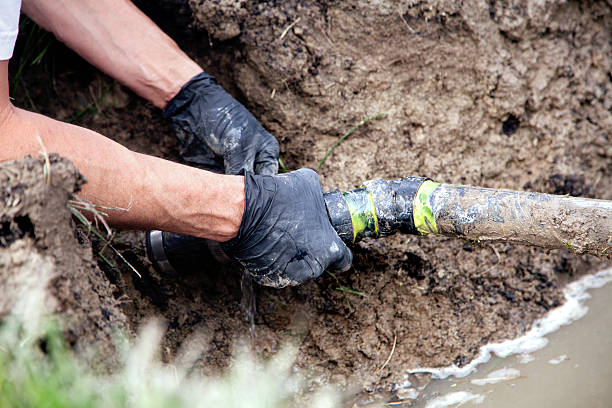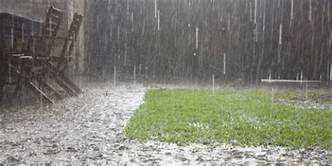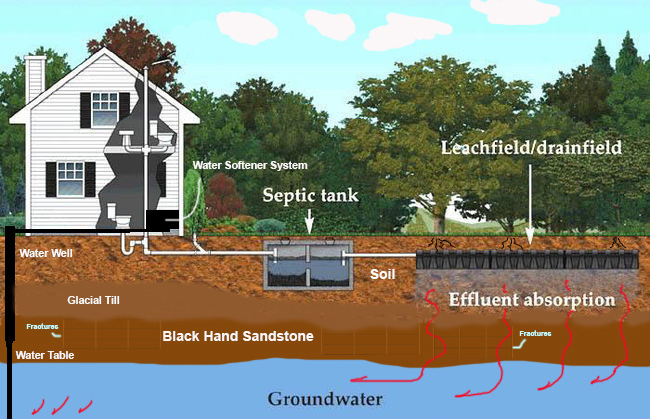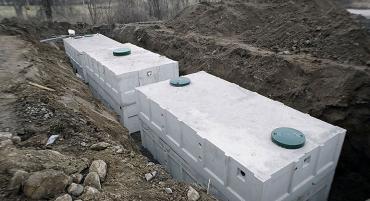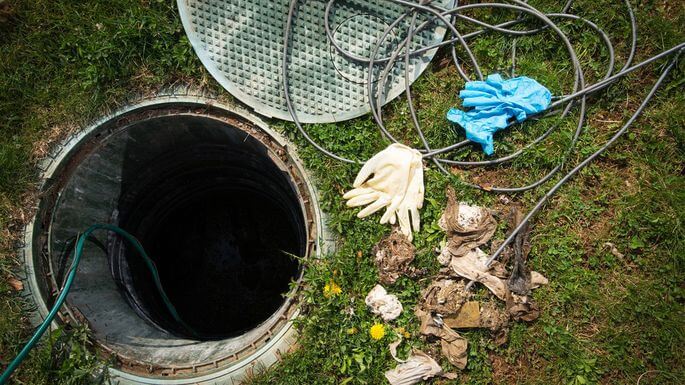The internet is rife with crazy ideas for just about any information you are searching for to meet your home care needs. A Popular Mechanics article by Roy Berendsohn tackled a question like that last year about one urban myth concerning septic tank pumping.
Here is the question:
“’I’ve heard that tossing a whole dead chicken into my septic tank lessens the need to have the tank pumped because the bacterial action created by the rotting carcass is effective at breaking down sewage. True?”
Berendsohn said he actually spoke with people in the 1980s who had been doing the dead chicken thing, or using rotting hamburger or roadkill, to keep the job of pumping their septic tanks at bay. Unfortunately, this theory about coaxing decomposition is NOT the way to go.
The rotting carcass theory has the effect of pushing harmful pollution out of one’s septic tank, through the pipes and leach field, and into the groundwater. This can represent a major hazard to your general community.
Enough of this nonsense!
Yes, pumping your septic tank is a nasty, disagreeable job, but taking care of it on a regular basis protects your property from septic system disasters, which are even more disagreeable.
The real way to protect your septic system and ensure its longevity.
Pipeline, the newsletter for The National Environmental Services Center, recommends these basic steps for septic system maintenance.
Septic system location
Do you even know where your septic system is? Yes, septic system professionals can have trouble finding some systems, so don’t be shy about getting help. Knowledge is power, and a septic system professional can help you find your system components if you’re not sure where they are.
Here are three steps septic professionals may use to locate your system if there is no above-ground marker such as a septic tank riser.
• A look in the basement can provide helpful information for locating your septic system such as noting the direction your sewage pipes leave your house through the wall.
• When the inspector goes back outside, he can insert an insulated probe into the soil that will help locate buried pipes.
• Once your professional locates the septic system, it is important to draw a map that you can keep. This saves steps later.
Pipe Connections
Your septic professional may want to take a few steps to check the pipe connections in your home. This procedure can include flushing toilets, running the washing machine for one cycle, and running water into the sinks.
Find the manhole and inspection ports
This will require digging if you don’t use tank risers or elevated access covers. So, once you access the tank, Pipeline recommends installing one of these above-ground methods of easy tank identification.
Annual system inspections
These ensure that your septic system is working properly. Additionally, a regular septic tank evaluation provides you with the information you need to know how often your septic tank should be pumped.
Sludge and scum layers in your septic tank are indicators of your tank condition. Your annual inspection should include measuring the sludge and scum layers in your tank. Inspectors can do this by inserting a tool through your tank’s inspection port.
Additionally, septic inspectors should check all parts of the tank to verify that there are no cracks.
Drainfield Problems in Your Septic System
According to the Washington State Department of Health, some indications of drainfield problems may include the following:
- Foul order around your property
- Bright green, spongy grass near your drainfield or over your septic tank
- Damp spots or standing water near your outdoor septic system components
Help for Septic Tank Pumping
The Pipeline article (Pg. 2) provides a guidance chart for septic tank pumping frequency. So, don’t rely on any crazy dead chicken myths when approaching your septic system health; it’s just too important. If you feel that your knowledge about septic system maintenance and tank pumping is limited and you live in or around Knoxville, contact the experts at J & J Septic to schedule your service. You may also call them at (865) 622-4428.



